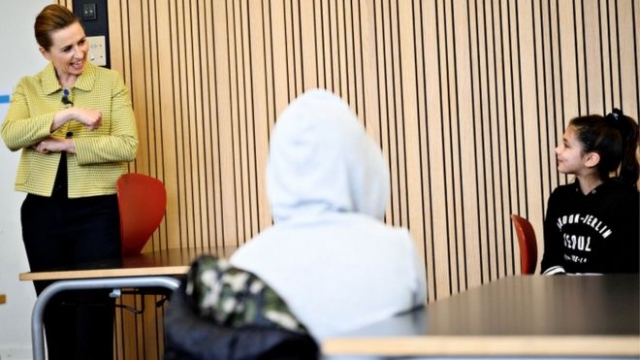Coronavirus: Young Children in Denmark Return to School
Denmark has allowed children up to age 11 to return to nurseries and schools, making it the first European country to loosen the restrictions on education imposed due to COVID-19. Prime Minister Mette Frederiksen welcomed children as they went back to school in Copenhagen.
Denmark was among the first countries in Europe to impose a lockdown, with schools closed on 12 March.
Infection rates have lowered in Denmark: the country now has 6,681 confirmed cases of the coronavirus infection and 309 total deaths, 10 of which are new and related to the illness. Experts have expressed their worry, saying that it might still be risky to relax restrictions.
Elisa Rimpler of the BUPL, the Danish Union of Early Childhood and Youth Educators, told the BBC that the educational institutes that have reopened have the children wash their hands many times during the day, and as they have no masks, their biggest challenge is keeping a good distance from each other.
Denmark's move came as European Commission Chief Ursula von der Leyen set out a roadmap on Wednesday for a gradual lifting of restrictions across the 27-state bloc, but made clear it was not a signal to act immediately.
Denmark was one of the first countries in the European Union to shut schools in an effort to stop the spread of COVID-19, imposing restrictions on educational institutions on March 12.
Georgia shut school doors on March 4, and from March 16 most schools and colleges had made a switch to remote learning. The non-traditional method of teaching was to continue until April 21, the last day of the State of Emergency in the country. Now the Government of Georgia has demanded the state of emergency to be extended at least until May 10. The extension of the state of emergency automatically extends the remote learning. So, if the President and Parliament approve the initiative, Georgian students will have to keep on Zooming until then.
By Nini Dakhundaridze
Source: BBC
Image source: Reuters












